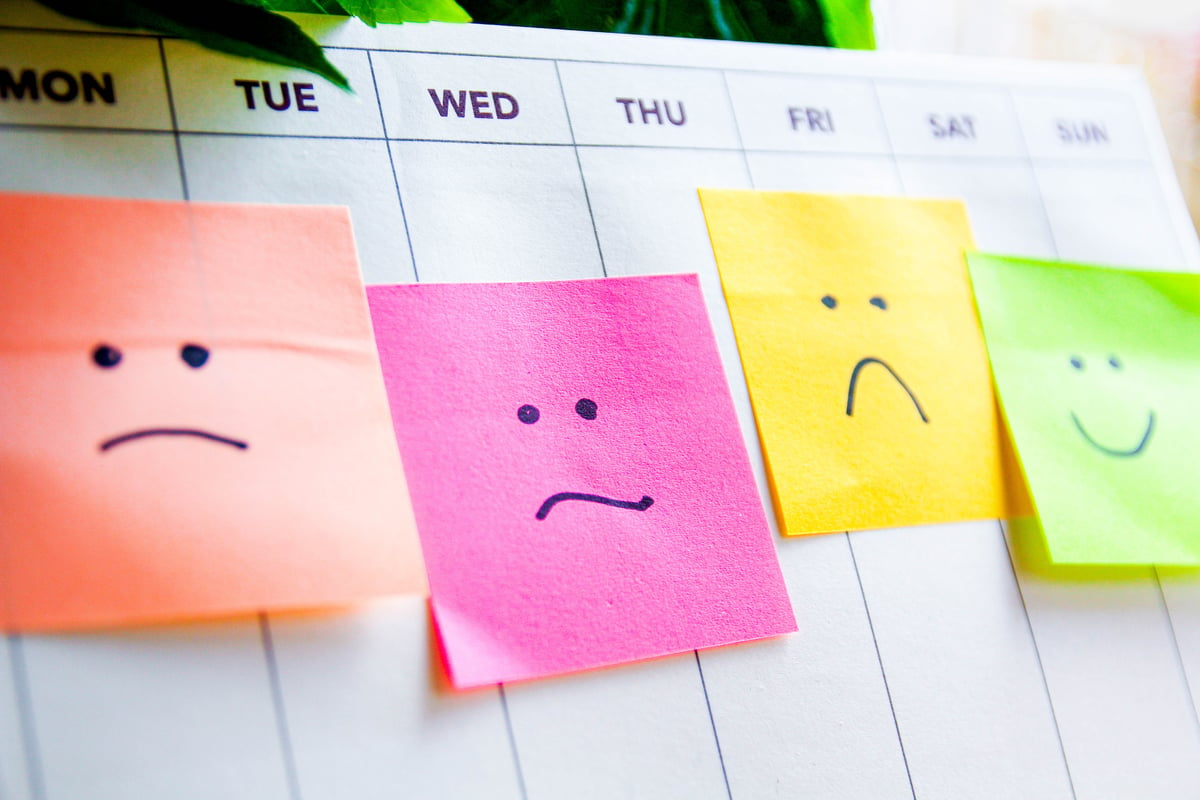
On Sunday afternoons, Sarah* feels it creeping in.
The sinking feeling. The irritability. The quiet panic.
She'll scroll aimlessly on her phone, pick pointless fights with her boyfriend, or cry for no obvious reason. Then, she wakes up on Monday and pulls on the work version of herself like a costume.
"I don't know how to describe it other than I can feel myself fading out or changing," she told Mamamia. "Weekend me is fun, a bit chaotic, creative. Weekday me is … beige. She's beige."
Sarah said she often feels like a "cardboard cut-out" version of herself at work, one who fake-laughs and wears structured blazers.
"It might just be the culture there but I feel like that I'm faking it and that I have to leave the fun parts of myself at the door," she said. "I don't really have many work friends. And I talk differently when I'm in office. When I get home, I'm exhausted. Like I've been on stage all day."
Watch: How to become a 'personality hire' at work. Post continues after video.





























































































